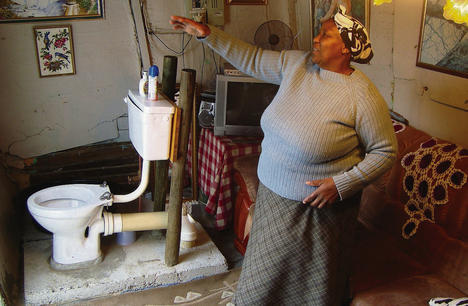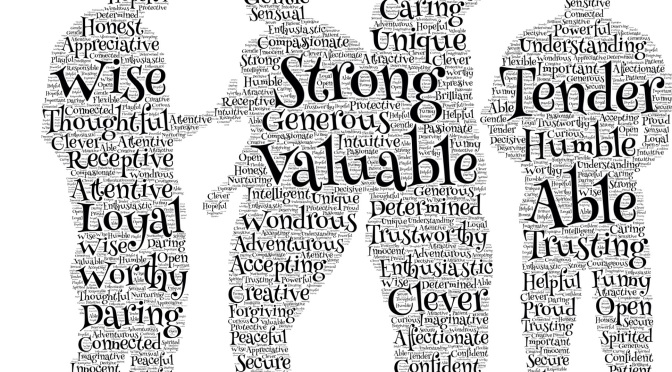So I’m back home. Felt strange at first. It’s the little things I miss, like the radio in the morning, the conversations with Ed, the outdoor lunches, the meetings with “my” team.
Going to a different world leaves traces. Sometimes less when the exposure was minimal and sometimes more, when many touch points with the other culture were made. Having spent three months in Tanzania and reflecting on it I come up with some points where I think I’ve changed somewhat. It’s an integral part of what the Global Citizen experience at Credit Suisse is about: reflection and building awareness.
1. Never Assume
Before starting this assignment I have assumed that after the disbursal of loans everything would be running smoothly. Through more insight I’ve come to the conclusion that there are so many important details to running a Microfinance Institution efficiently that it’s more an art than a business. There sure is the financial side but there are also cultural and people sides to this business. Understanding what drives staff, what delights customers, what the fresh regulator really requires, what competitors do and what investors want is no small achievement. Acting on it becomes a delicate balancing act.
2. Don’t Force It
During my assignment I didn’t have any formal authority. I had only whatever authority and status people attributed to me. However, I realized that telling what to do, insisting or even commanding are not helpful to ensure optimal learning for the recipients. Neither are they helpful to manage people, at least not in all cultures.

3. Walk The Talk
I met a vet who had joined his wife on a missionary assignment in Iringa and ended up vaccinating all the chicken in small villages. As a result he got to know poor people really well as he personally caught the hens inside their homes and saw what was there and what was not. He recommends every development agency staff spends some time in the villages to understand what the mission is really about.
I was lucky that my supervisor wanted me to see some branches before starting the improvement project. Even though I’ve merely scratched the surface, I now know the process steps and the reality in the branches better. Which ultimately helped in bridging the gap between headquarter and the branches on some issues.
4. Be Patient
Some time back I joined a mandatory Fire & Evacuation training where 30 people had been invited. Four attendees were present on time and the last participant arrived 32 minutes late. In the end we were 14 participants in total. I’m learning to accept things that don’t work how I think they should.
5. Ask Questions
There were always people in my life asking me questions and making me feel important. Until I found out that they had simply mastered the art of asking and that I was supposed to ask back some questions. So these days I’m asking more questions, which makes any conversation less about me but about the other person or about shared interests.
6. Listen
This is the combination of asking questions and being patient. Listening out the other person is an opportunity to get to know that person and their thought process better. I found out unexpected things by not interrupting the other person.
7. Build Rapport Before Transacting
There always is some kind of relationship building before Tanzanians get down to business, and be it ever so brief. Not only do they ask each other “how are you?” but they also remember and relate to it at a later time. “How do you do?” is not a set phrase that is answered with the echo “How do you do!”, but instead leads to a real exchange. Sometimes at least. My impression of the FINCA work place is that of a family where all care about each other.
8. Appreciate Product Quality
There doesn’t seem to be a single producer in Tanzania who can galvanize metal well. Every faucet looks bad after a few years and all the corrugated iron roofs become rusty. Lamination on furniture peels off both because of poor glues and because solid wooden furniture is the exception. Services are poor with lots of variance in throughput time and with many defects. The education level of people is low and whatever needs to be of good quality is imported. Infrastructure (roads, rails, water supply, houses) is not maintained well and power outages are normal. There are notable exceptions in some niche areas of woodcraft, agricultural products and where big business resides. I really appreciated them.
9. Accept
Having had the phone snatched from me while I was using it set in motion some thoughts and actions. I did not spend too much time mourning the loss or seeking revenge but through preparation (frequent backups) and willingness to look forward I managed to fix the issue within a few days. Not only could I accept my loss but I also accepted the languid reactions of people around me as they must have had many things stolen from them in their lives. And I’ve had to accept the fact that the Tanzanian public is a bit like the savanna where predators are lurking.
10. Put In The Additional Effort
In spite of all acceptance and patience I also realized that without someone in the driver seat nothing would happen at times. So again and again I would raise a certain topic and ask for a delivery date or suggest action points. It’s all about keeping the momentum.
As these are some small personal behavior changes I doubt that any other person may experience the same. I believe that exposing ourself to something different holds valuable lessons for each of us. Jump in!
(image by John Hain on flickr)

